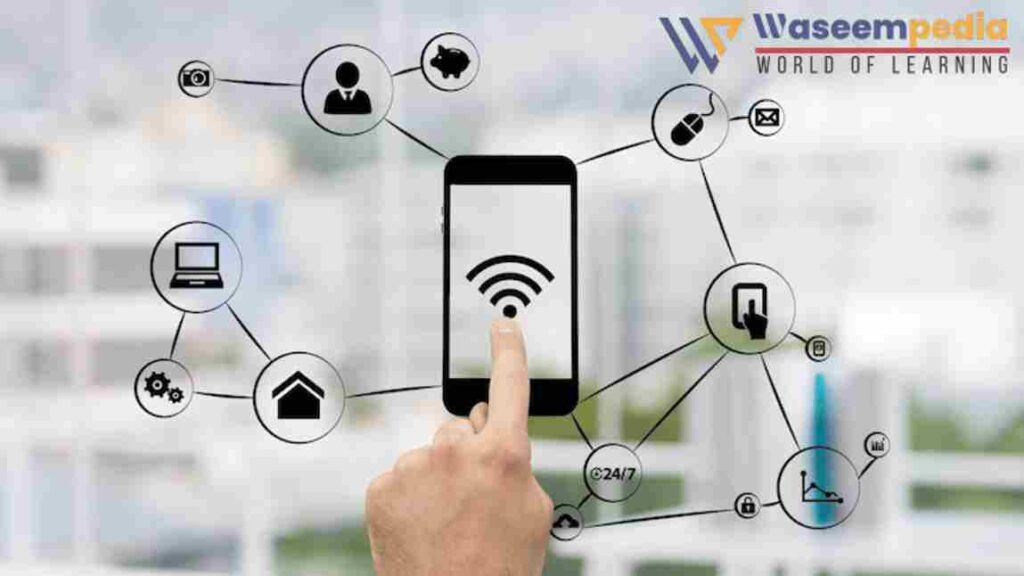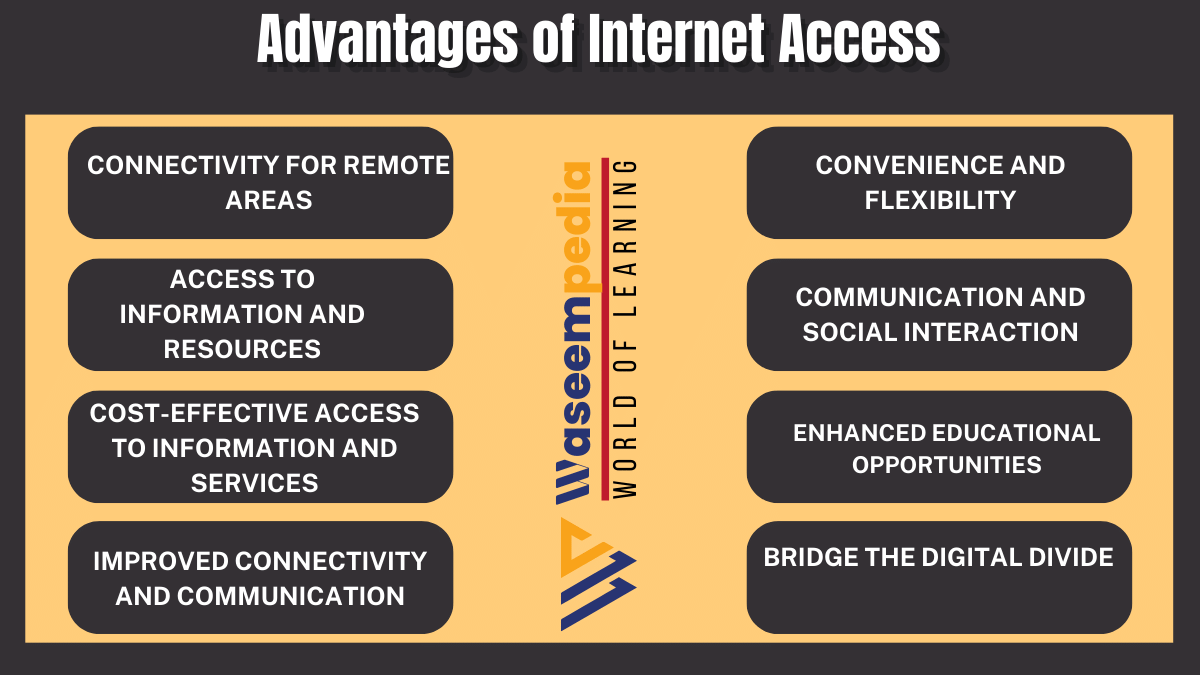Internet access has transformed the way we live, work, and interact with the world. Internet advantages are vast, ranging from global connectivity and access to information to communication, collaboration, and personal empowerment.
Internet access has become an essential tool for personal, professional, and societal growth, opening up opportunities and possibilities that were once unimaginable. In this article, we will explore the numerous advantages of Internet access and how it has revolutionized various aspects of our daily lives.

Internet access has become an indispensable resource in today’s interconnected world. It enables individuals, businesses, and communities to connect with each other, exchange information, and access a vast array of resources and services. Let’s delve into the advantages of Internet access and how it has transformed various aspects of our lives.
10 Advantages of Internet Access
10 Advantages of Internet Access are as following.
1. Global Connectivity
Internet access brings the world closer, connecting people across geographical boundaries. It facilitates instant communication and collaboration, allowing individuals to interact with friends, family, colleagues, and even strangers from different parts of the world. Through social media platforms, email, video calls, and instant messaging apps, we can bridge the distance and form meaningful connections.
2. Access to Information
One of the most significant advantages of Internet access is the wealth of information it provides at our fingertips. With just a few clicks, we can access an extensive range of knowledge, research articles, news updates, educational resources, and much more. Internet access empowers individuals to stay informed, explore new topics, and enhance their understanding of the world.
3. Communication and Collaboration
Internet access revolutionizes communication and collaboration. It enables real-time communication through email, messaging apps, and video conferencing tools, making it easier than ever to stay connected with others. Businesses and teams can collaborate remotely, sharing documents, conducting virtual meetings, and working together seamlessly regardless of their physical location.
4. E-commerce and Online Services
Internet access has transformed the way we shop and access services. E-commerce platforms allow us to browse and purchase products from the comfort of our homes, offering convenience and a wide range of choices. Additionally, numerous online services have emerged, such as food delivery, ride-sharing, online banking, and entertainment streaming, providing convenience and enhancing our daily lives.
5. Education and Learning Opportunities
Internet access has democratized education, providing vast learning opportunities for people of all ages. Online courses, e-learning platforms, and educational resources enable individuals to acquire knowledge, develop new skills, and pursue their educational goals. Internet access makes education more accessible, flexible, and tailored to individual needs.
6. Entertainment and Media
Internet access has revolutionized the entertainment industry. Streaming services like Netflix, YouTube, and Spotify offer a wide range of movies, shows, music, and podcasts that can be enjoyed on-demand. Social media platforms provide a platform for creative expression, sharing photos, videos,
and stories with friends and followers. Internet access has made entertainment and media more accessible, diverse, and personalized.
7. Personal Empowerment and Self-Expression
Internet access empowers individuals to express themselves, share their opinions, and participate in public discourse. Social media, blogs, and online forums enable us to voice our thoughts, engage with others, and create communities around shared interests. Internet access provides a platform for personal empowerment, allowing individuals to make their voices heard and drive social change.
8. Social Connections and Networking
Internet access facilitates social connections and networking on a global scale. Social media platforms and professional networking sites enable us to connect with friends, family, colleagues, and like-minded individuals from around the world. These connections foster collaboration, knowledge-sharing, and opportunities for personal and professional growth.
9. Access to Government Services and Information
Internet access plays a vital role in providing access to government services and information. Citizens can access official websites to obtain important documents, pay taxes, apply for permits, and access various government services. It enhances transparency, efficiency, and convenience in interactions with governmental institutions.
10. Flexibility and Convenience
Internet access offers unparalleled flexibility and convenience in our daily lives. We can perform tasks such as banking, shopping, and accessing information at any time and from anywhere. Remote work and telecommuting have become increasingly feasible, enabling individuals to work flexibly and achieve a better work-life balance.
Related FAQ’S
What is the 10 advantages of internet?
Access to vast information and knowledge.
Communication with people globally.
Convenience in shopping and online services.
Educational resources and online courses.
Instant news and updates.
Entertainment through videos, music, and games.
Opportunities for remote work and freelancing.
Social networking and staying connected.
Access to online banking and financial services.
Efficient research and data gathering.
What is the advantage of Internet access to students?
Internet access provides students with a vast amount of educational resources, online courses, research materials, and collaborative tools, enhancing their learning experience and facilitating self-paced learning.
How do we access internet?
We can access the internet through various devices like smartphones, computers, tablets, or other internet-enabled devices, using a reliable internet connection such as Wi-Fi, Ethernet, or mobile data.
How has Internet access increased convenience in our lives?
We can access the internet through various devices like smartphones, computers, tablets, or other internet-enabled devices, using a reliable internet connection such as Wi-Fi, Ethernet, or mobile data.
What role does the Internet play in social connections and networking?
The Internet plays a significant role in social connections and networking by allowing people to connect with friends, family, and colleagues globally through social media platforms, online communities, and professional networking sites.

